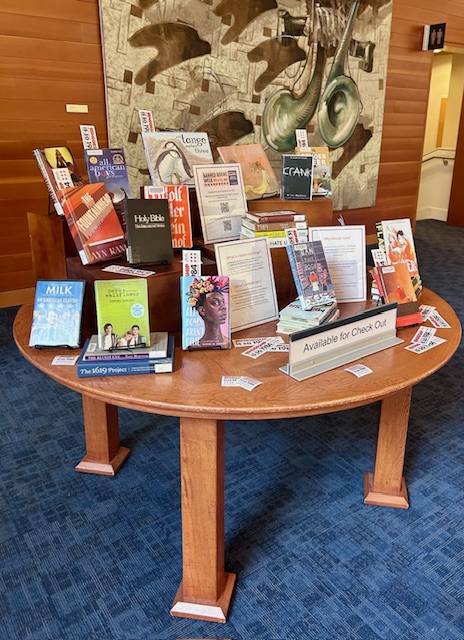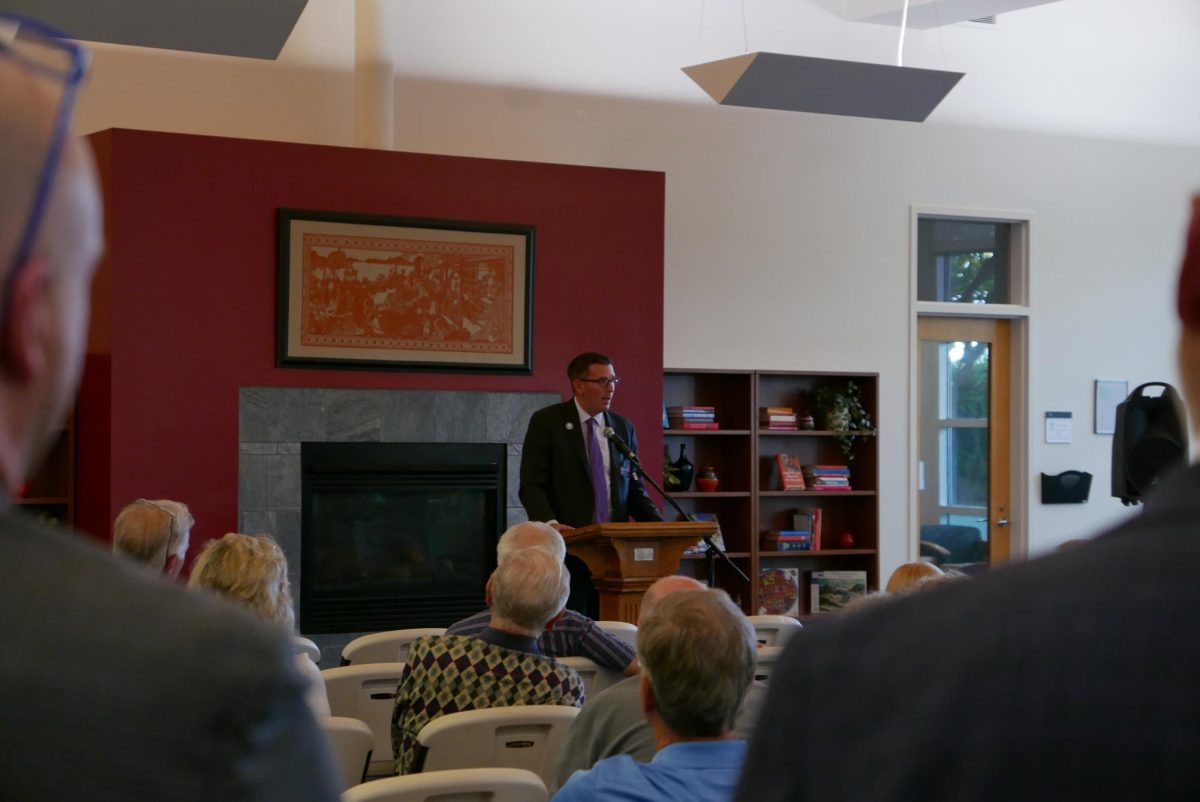A guest lecturer and professor discussed why humans tend to cluster together in groups, also known as friend groups, communities and countries during a lecture on the biology behind why we war March 18 in Ice Auditorium.
Doctor Jeff Victoroff, associate professor of clinical neurology and psychiatry at University of Southern California, said we do this as people to survive. He gave an example of early humans working in groups to take down wooly mammoths.
As he continued on with his lecture he elaborated on how we instinctually feel about others who aren’t in our groups.
“The creatures that will help me survive are my group,” Victoroff said. “Everyone else is a threat.”
We know this to be true from a lime mold called Dictyoselim Discoidem, which lives on the sea floor. Many of these amoebas have a gene called csA that can be detected by others of the same species. When food is in short supply the amoebas with the gene come together to form a slug group, in which 80 percent of the amoebas will survive. Those without the gene, who are different from the group, are excluded and will die of starvation.
Humans don’t have such a gene that can be recognized by everyone, but we do have traits that help us belong to groups.
To be in a group, we must appear trustworthy, and there are two ways to be trustworthy: in-born or acquired.
In-born trustworthiness is our chemical make up, our skin color and other things of that nature, aspects we cannot control. Acquired trustworthiness is our appearance, our behavior and our beliefs.
Once we have become trustworthy to the group, we start trusting the others who are in this group. Once this association has occurred, our brain creates a chemical called Oxytocin, making us feel this trustworthiness.
The reason we go to war is a two-part answer: We want to prove our trustworthiness and are threatened by others who aren’t in our group.
The ultimate way to prove our trustworthiness is through altruism. Altruism is essentially the willingness to die for one’s group. Those who perform this act are more likely to be genealogically fit, and continue on with their family tree.
Sex is often a motivator to go to war. Soldiers have the idea that they will be more sexually attractive by joining the military, and thus continuing on through their offspring.
Today, this connection still goes through our brain, but may not be the best way for many.
“This may have been perfect in the stone age,” Victoroff said. “But not in our diverse culture today.”
Chris Haddeland/Senior reporter
Chris Haddeland can be reached at [email protected].






